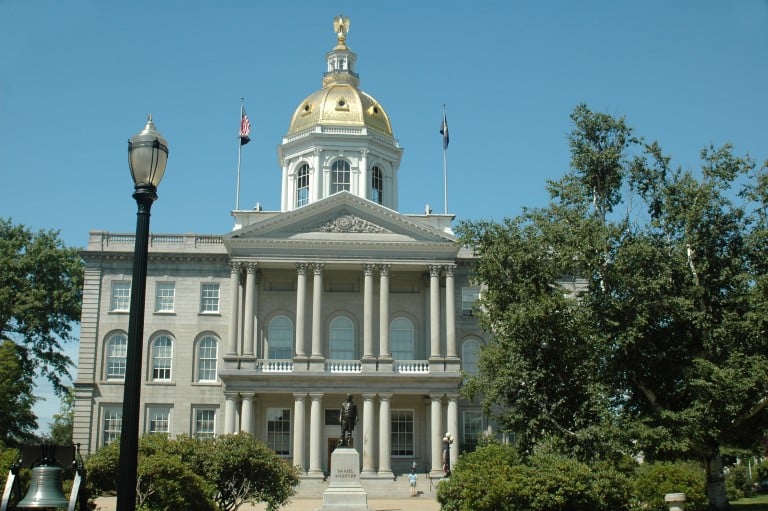House committees to deliberate on labor and energy issues Wed.

Legislation to focus on issues around marijuana sales, Medicaid reimbursement, solar and more

Legislation on labor and energy — two of the highest costs when it comes to business — will be coming up to vote on Wednesday’s committee meetings and Thursday full session (with Tuesday’s committee meetings being cancelled because of the storm).
Wednesday’s committee meetings
The House Ways and Means will be voting on the major marijuana bill, House Bill 639, which will allow for legalized retail sales, cultivation and manufacturing operations regulated by the renamed liquor and cannabis commission.
The Finance Committee will be voting on three bills that will help increase school building aid (House Bill 322, HB 541 and HB 546), all high on the agenda of the construction industry. That committee will also be voting on whether to increase the Medicaid reimbursement rates for understaffed assisted living facilities.
In the afternoon, the Labor Committee will vote on HB 190, which would sharply cut the duration of jobless benefits when the unemployment rate is low, as it is now. Supporters said it would force people back into the labor force. It will probably end up with a split vote, as evidenced by the recommendations — or the lack thereof because of tie votes — in the House Calendar for Thursday’s marathon session.
When it comes to labor, those upcoming full House votes include HB 58, which would up the subminimum tipped wage (currently $3.27 per hour) to the minimum wage of $7.25 hour. Supporters argue that tips more than make up the difference in pricier restaurants, but they barely do in budget restaurants. Opponents said businesses should decide how much or how little to pay their workers.
There is also HB 125, which would bring back some of the child labor laws that were eliminated last session. It would prevent youths (ages 16 to 17) from working all night, or very late into the night during school weeks. Opponents, however, said that the employer and the teens should make that decision.
There is also a split vote on energy bills that the full House must now decide. That includes:
- HB 208, which will provide state goals for reducing greenhouse gas admissions, allowing the state to access millions of federal funds — goals opponents deride as “extreme.”
- HB 263, which would require that those earning a Solar Renewable Energy Certificate should be informed that, if they don’t sell them, they would lapse to the utilities. Not informing them amounts to a “taking” of their property, supporters say, while opponents said letting them know would cost the utilities and therefore the ratepayers money.
- HB 524, which would up the amount of Regional Greenhouse Gas Initiative (RGGI) going to energy conservation in the utilities NH Saves program, thereby lowering the amount going back to the consumer in rebates. Most RGGI states spend nearly all the funds, paid for by energy producers for every ton of carbon, for energy efficiency, maintaining that it saves consumers in the long run, but not New Hampshire, which claims that the benefits of a small rebate is greater.
- HB 605, which ups the solar goals into the Renewable Portfolio Standard Law from 0.7 percent to 3 percent by 2025 and up to 25 percent in 2050. That’s still way below surrounding states, and it is particularly important in New Hampshire since we don’t produce much of our own electricity, say supporters. Opponents say the money that it cost ratepayers isn’t worth it.
- HB 523, which would increase five-fold the amount a business could net-meter from one to five megawatts. Municipalities already can do this, and large businesses would like to as well, but opponents said that it amounts to corporate welfare.
The Senate is expected to pass a similar bill, SB 79, to expand net metering for businesses. The Energy and Natural Resources Committee unanimously recommended it and it’s on the consent calendar, meaning that unless it is pulled, it will be passed with all the other noncontroversial bills.
SB 79 has some restrictions on it: At least a fifth of the energy has to be used in the business’s own generation.
Also on the consent calendar is a bill (SB 269) that would forbid employers from suggesting tip-sharing arrangements in an effort to protect workers from being pressured into it.
On the regular calendar, but also backed by unanimous recommendation, is a “housing champion” bill (SB 145), which rewards municipalities for policies that favor workforce housing; SB267, tightening up rulemaking for advanced recycling facilities; SB 152, encouraging workforce training; SB 86, financing healthcare workforce development; and SB 237, funding a child care scholarship program.
That doesn’t say that the Senate won’t have any contested votes on Thursday, but a lot fewer of them are in the House.





